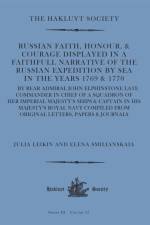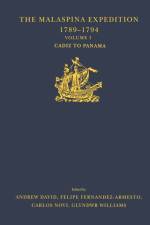- Journal of the Voyage by Alejandro Malaspina. Volume I: Cádiz to Panamá
av Andrew David
681
Among the voyages of exploration and surveying in the late 18th century, that of Alejandro Malaspina best represents the high ideals and scientific interests of the Enlightenment. Italian-born, Malaspina entered the Spanish navy in 1774. In September 1788 he and fellow-officer José Bustamante submitted a plan to the Ministry of Marine for a voyage of survey and inspection to Spanish territories in the Americas and Philippines. The expedition was to produce hydrographic charts for the use of Spanish merchantmen and warships and to report on the political, economic and defensive state of Spain's overseas possessions. The plan was approved and in July 1789 Malaspina and Bustamante sailed from Cà diz in the purpose-built corvettes, Descubierta and Atrevida. On board the vessels were scientists and artists and an array of the latest surveying and astronomical instruments. The voyage lasted more than five years. On his return Malaspina was promoted Brigadier de la Real Armada, and began work on an account of the voyage in seven volumes to dwarf the narratives of his predecessors in the Pacific such as Cook and Bougainville. Among much else, it would contain sweeping recommendations for reform in the governance of Spain's overseas empire. But Malaspina became involved in political intrigue. In November 1795 he was arrested, stripped of his rank and sentenced to life imprisonment. Although released in 1803, Malaspina spent the last seven years of his life in obscure retirement in Italy. He never resumed work on the great edition, and his journal was not published in Spain until 1885. Only in recent years has a multi-volume edition appeared under the auspices of the Museo Naval, Madrid, that does justice to the achievements of what for long was a forgotten voyage. This first volume of a series of three contains Malaspina's diario or journal from 31 July 1789 to 14 December 1790, newly translated into English, with substantial introduction and commentary. Among the places visited and described are Montevideo, Puerto Deseado, Port Egmont, Puerto San Carlos, ValparaÃ-so, Callao, Guayaquil and Panamà . Other texts include Malaspina's introduction to his intended edition, and his correspondence with the Minister of the Marine before and during the voyage.



